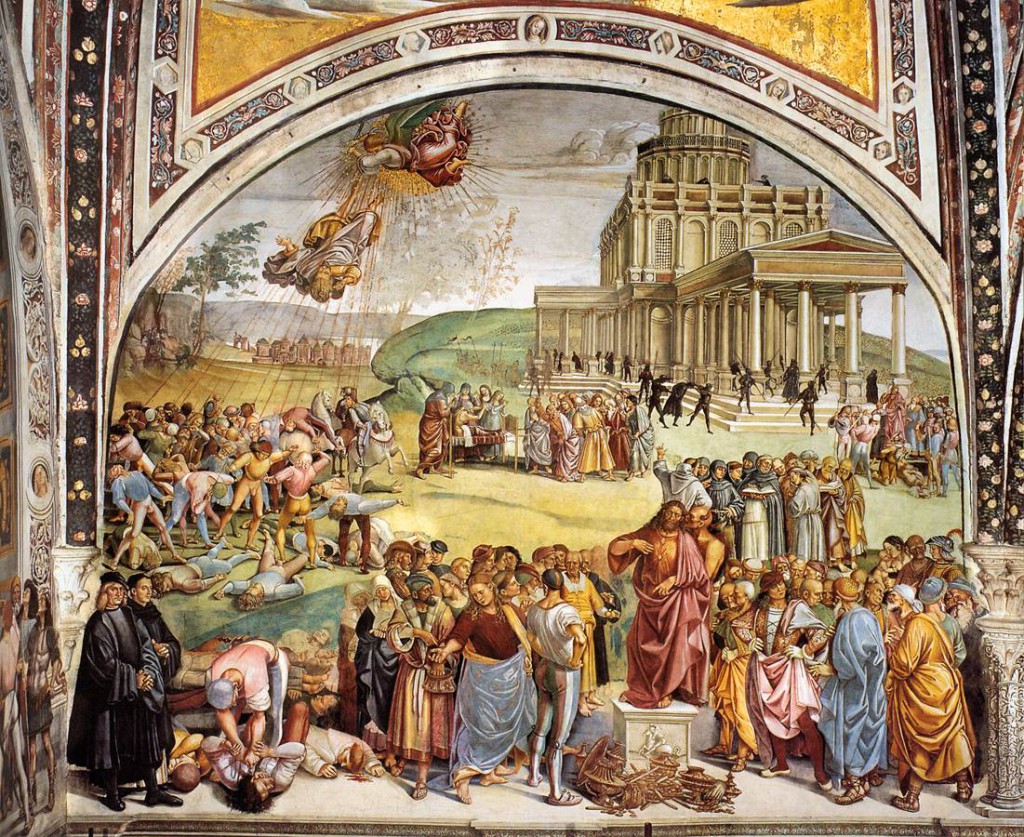This post is based on the theme of a chapter in St. Paul versus St. Peter: A Tale of Two Missions by Michael Goulder. I depart from Goulder’s own presentation in one significant respect: Goulder wrote as if 2 Thessalonians were a genuine letter by Paul (in which Paul writes about the future in a way he was never to repeat); I treat the letter as spurious (following many scholars in this view). At the end of the post I introduce an alternative scenario that might apply if more critical scholars are correct and the letter should be dated to the second century.
2 Thessalonians appears to be a letter written by Paul. It disarmingly warns readers to be on guard against letters that appear penned by “himself” yet are in fact forgeries. The letter proceeds to warn readers not to be misled by preaching that the Kingdom of God was “at hand” but that a sequence of events had to happen first. One must expect a delay in the coming of the end.
Now we request you, brethren, with regard to the coming of our Lord Jesus Christ and our gathering together to Him, that you not be quickly shaken from your composure or be disturbed either by a spirit or a message [word] or a letter as if from us, to the effect that the day of the Lord has come.

Do you not remember that while I was still with you, I was telling you these things?
And you know what restrains him now, so that in his time he will be revealed. For the mystery of lawlessness is already at work; only he who now restrains will do so until he is taken out of the way.
Then that lawless one will be revealed whom the Lord will slay with the breath of His mouth and bring to an end by the appearance of His coming (2 Thess. 2:1-8 NASB)
How could anyone have believed that “the day of the Lord” had already come? Goulder’s explanation:
The idea has gained force in three ways:
- Christians cry it out during services in moments of ecstasy (by spirit);
- they appeal to the Bible (by word), perhaps especially Malachi 4.5, ‘Behold, I will send you Elijah the prophet before the great and terrible day of the Lord comes’;
- and a letter has been received claiming to be from Paul.
(p. 85. My formatting. Goulder discounts the likelihood of forgeries on the assumption that the letter was written at a time when churches were very small and carried and authenticated by well-known persons.)
So let’s see how the author of this letter, the one writing in the name of Paul, introduces and sets out his view of prophecy to the churches.
He divides the prophesied scenario into three phases. One of these is the “here and now”; the remaining two belong to the future. Continue reading “How a Spurious Letter “From Paul” Inspired the End Time Prophecies of the New Testament”
